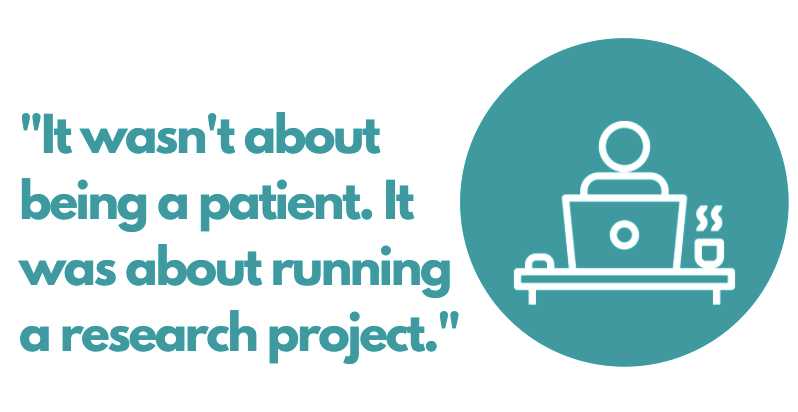Decisions to arrange acute admissions to a psychiatric unit

Lasting legacy of CLAHRC NWC project on decisions to arrange acute admissions to a psychiatric unit
We checked in with the team behind the CLAHRC PPP (Partner Priority Programme) project “Examining the role of multiple clinical and non-clinical factors in decisions to admit patients to acute psychiatric units”, to get an idea of how projects often have an impact that goes beyond their initial scope, both for those involved and on future research.
The original project set out to identify factors influencing clinicians decisions to arrange acute psychiatric admissions, and a service user was involved in all aspects of the project from the planning, design, interviewing, data analysis and dissemination. In its striking conclusion, the study outlined how parallel non-clinical factors were often reported to play a significant role in decisions to arrange acute admissions to a psychiatric unit. These factors ranged from fear of legal liability, to lack of resources.
Carl O’Loughlin started as a Public Adviser to CLAHRC and became an intern for the project. Today he’s a newly qualified mental health nurse.
“I worked on all elements of the project, from planning the ethics to running parts of it as an intern, which was quite innovative in and of itself – I was one of the first patient interns they had. Being involved opened my eyes a lot, and there was a lot of training and support behind it.
“The project application was a learning experience in itself, giving me the opportunity to get involved with the project design working with Nick McEwan from and from the University of Central Lancaster (who was my academic supervisor). It wasn’t about being a patient. It was about running a research project. In other projects I’d been involved with my contribution was more limited to providing the patient perspective. I wasn’t too sure where to go with my career, I’d been off on long term sick leave for many years. Not long into the project I just decided that I wanted to be a mental health nurse. I applied to be a nurse at Chester university and I didn’t expect to be accepted but I was interviewed and accepted straight away. I completed my training in December.
“The project taught me a hell of a lot. How to approach ethics applications, how to conduct research, How to do a thematic analysis in research. Even down to things like referencing. It was really helpful towards my university degree. It was all excellent preparation.”
Carl now works as a full time mental health nurse for Cheshire and Wirral partnership NHS Foundation Trust. Beyond the project’s capacity building knock-on impact, the applied nature of the research ensured it was meaningful to clinicians in practice.
Prof Rajan (Taj) Nathan, Consultant Forensic Psychiatrist who supported the project explained: “University-based research is often so purified that it doesn’t reflect what clinicians do in their day-to-day job. So whether it’s sampling a very pure sample of patients who meet a very particular set of criteria, or the intervention is so narrowly defined that when you actually go out in the field, if you were to follow me around in my day to day practice, that sort of pure research doesn’t really have a direct bearing on what I do. What we were trying to do with this project is get into a sort of messy real world and try to produce research that is not purified and by extension is more closely linked to what clinicians do.”
In addition to a paper and conference presentation relating to other spin offs of the original project, a new ‘Complex Mental Health Needs’ project is to be launched by Dr Pooja Saini at ARC NWC partner Liverpool John Moores University. Prof Taj Nathan continued: “A big study that has taken off which is a consequence of the relationship that develops under CLAHRC, is a quarter of a million pound funded study to look at how well or how poorly mental health services address the needs of individuals with very complex mental health needs. Complexity tends to be pulled out of pure academic university-based studies and what we’re saying is this is exactly where research should be focused.”
Dr Pooja Saini will be leading the new study, she said: “Our new project has big ambitions, it aims to inform the development of improved service models for people with complex mental health needs and is led by researchers at Liverpool John Moores University in collaboration with Cheshire and Wirral Partnership NHS Foundation Trust who are both ARC NWC members.”